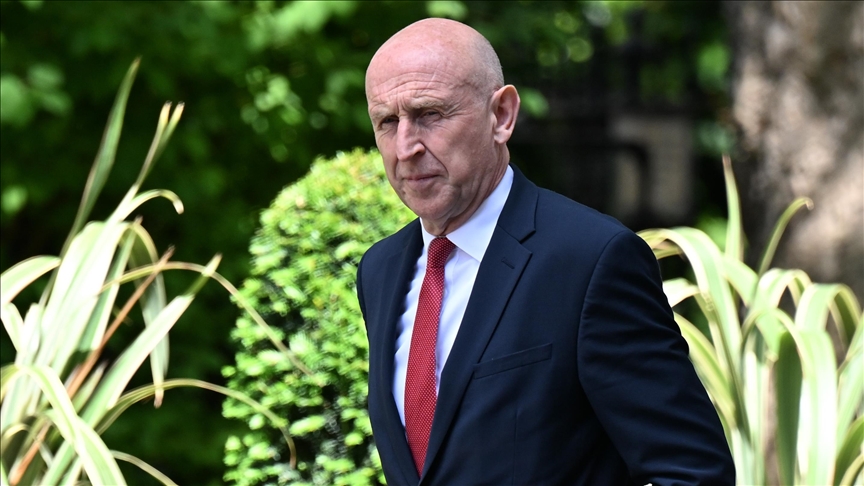UK secretly relocated Afghans after 2022 data breach; government issues apology
'This serious data incident should never have happened,' says Defense Secretary John Healey

LONDON
The UK apologized Tuesday to almost 19,000 Afghans whose personal information was mistakenly leaked in 2022, and revealed that a secret scheme was launched to protect many of those affected.
Defense Secretary John Healey confirmed in parliament that the Ministry of Defense (MoD) accidentally shared the names of more than 18,000 people who had applied to the Afghan Relocations and Assistance Policy (ARAP) in February 2022.
The breach occurred when an official sent an email containing the full list of names, mistakenly believing it included 150 applicants.
Due to concerns that the Taliban could retaliate against those named, the previous government set up a hidden resettlement scheme called the Afghan Response Route (ARR).
Around 3,000 people were considered for relocation under the ARR, which was covered by a court-issued super-injunction that banned reporting of the incident for nearly two years.
That court order has been lifted, allowing details of the breach and the secret response to be made public.
‘This serious data incident should never have happened’
Healey told MPs that approximately 900 Afghans, along with 3,600 family members, have come to the UK or are currently in transit under the ARR.
He said those resettled under the ARR were subject to strict security checks, and were included in previously released totals for Afghan resettlements, although their route to the UK had not been disclosed.
Healey said the MoD attempted to contact everyone affected by the data breach. However, due to incomplete or outdated records, it was not possible to reach everyone.
“This serious data incident should never have happened,” Healey said. “It may have occurred three years ago under the previous government, but to all those whose information was compromised, I offer a sincere apology today on behalf of the British government.”
He expressed frustration that parliament and the public were kept in the dark about the leak and the response for so long. “It has been deeply uncomfortable not being able to tell MPs about this,” he added.
The super-injunction prevented eight organizations and journalists from reporting on the breach since 2023.
Some Cabinet ministers reportedly only learned about the scheme after the most recent general election.
Healey urged greater transparency going forward and asked the opposition to join him in offering an apology.





